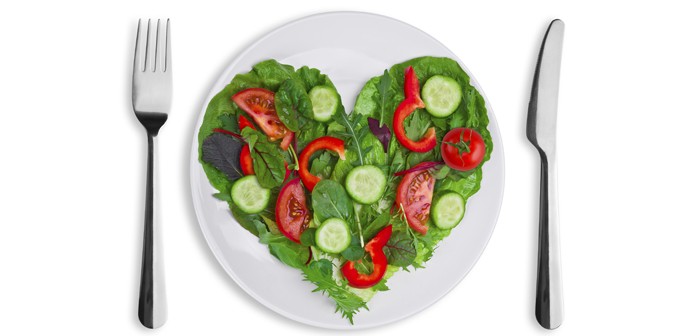The vegetarian diet is fashionable. The concern for a healthy and balanced diet and taking care of your body, are moving many to move to the benefits of a meatless diet. But, vegetarianism, besides being a healthy dietary choice, constitutes an ethical choice of respect for living things.
Being vegetarian is a decision that is taken once in life. Some choose this lifestyle for health reasons, others do so to be consistent with an ecological approach, and others yet do it out of respect for the lives of animals. But although vegetarianism has become fashionable today, this eating style has been advocated since ancient times. The Greek world and ancient Rome had some remarkable vegetarians, as shown by the writings bequeathed to us, where the authors state their refusal or even their reluctance to feed on animals. And although the Greek philosopher Pythagoras was the indisputable leader of vegetarianism, the work On the Abstinence by Porphyry, constitutes, together with Plutarch’s On Eating Flesh, one of the most serious works that have come from ancient Greece. Meanwhile, the current defense of vegetarianism is characterized by the variety of arguments raised, ranging from pure vegetarianism, better known as “veganism” – where nutrition is based only on products of vegetal origin – to the “raw food” – based on food consisting of uncooked vegetables – through the famous lacto-ovo-vegetarians – who do not eat meat or fish, but do eat foods of animal origin, such as eggs, milk and honey. LookOut Magazine has exchanged a few words with David Román, author of the books: Ethical Diet and The milk you shouldn’t drink, and president of the Spanish Vegetarian Union (UVE) to learn and understand a little more about a lifestyle based on a 100% vegetable diet.
What is the difference between a vegan and a vegetarian?
[David Román] A vegan has a more committed ethical stance regarding animal rights. While the vegan recognizes the animals’ right to exist for their own reasons and not as commodities to humans, many vegetarians do not reach such a global vision. A vegetarian can be one for health reasons only, but if he’s also concerned about the ethical issues, he will deem important to respect life and therefore to not want to have to kill an animal for food. However, he may think that eating eggs or dairy products is ethically correct. This in itself is a contradiction, because although we tend to think that animals are machines to produce milk or eggs, the reality is very different and to obtain maximum performance, they are subject to all sorts of indignities and impositions contrary to their nature that inevitably cause them pain and suffering. And finally, they also end up in the slaughterhouse much earlier than their normal life expectancy would allow them: just when production decreases and they are no longer profitable. If killing is cruel, it is far more cruel to torture them day by day, and eventually kill them. Nevertheless, becoming an ovo-lacto-vegetarian already is a big step, and I think the term “vegetarian” should be generic and encompass all the different approaches that can be found within this broad way of seeing things.
What foods do they use that are not common?
[David Román] There is a wide range of cereals that are often unknown to people who basically consume wheat and rice. Very diverse recipes can be prepared using millet, quinoa, polenta, bulgur, couscous, buckwheat, etc. Another ingredient that was discovered for us in the oriental cuisine are the algae (the sea vegetables): there are a lot of edible varieties and they provide a delightful touch to many dishes. Another example is the sprouts, also common in the oriental cuisine. There is also a variety of products derived from soybeans, giving versatility to vegan cuisine. Most of these products are often found in health food or dietary food stores.
Keeping a style different from most, does it lead you to form a closed circle among just yourselves? What do you do when you attend a meeting at a restaurant or a party, where food is not what you usually eat?
[David Román] In Spain, the vegetarian lifestyle is still not widespread, but in other countries it is considered as being accepted. So certainly, our dietary requirements represent a barrier at times to attend certain events or social gatherings, but it’s all about organizing. Sometimes it suffices to preorder what we want to be prepared for us, or to ask to modify a dish removing or adding ingredients. Interestingly enough, usually in restaurants we are showered with attentions to meet our special requests. And besides, other guests always end up saying they would prefer to take our plates too! We believe that we should not be closed and avoid attending these events, but on the contrary, publicly display our option, to show that this is normal and perfectly affordable for any person.
Finally, what arguments would you present to a person who was questioning the possibility of being vegan to convince them?
[David Román] First of all, the fundamental message that we are proposing is very simple: that humans do not need animal products to survive, we do not need to exploit any animal and therefore to do so is an unjustified whim. But leaving aside all this, it has been shown that all animal products are harmful to human health, by its very composition. It is well known about meat (and with the current state of livestock, much more so); eggs are the most cholesterol-filled food, and dairy (“liquid meat”) are associated with a long list of problems ranging from allergies or asthma to certain cancers, as well as cardiovascular disease, diabetes or osteoporosis. In addition, livestock itself is anti-ecological, due to the waste of nutrients, water and energy required, and polluting waste they generate. So for a number of reasons, veganism is the healthiest and animal- and environment-friendly option. Any step taken towards veganism, however small, is good for the welfare of animals, the people and the planet.






